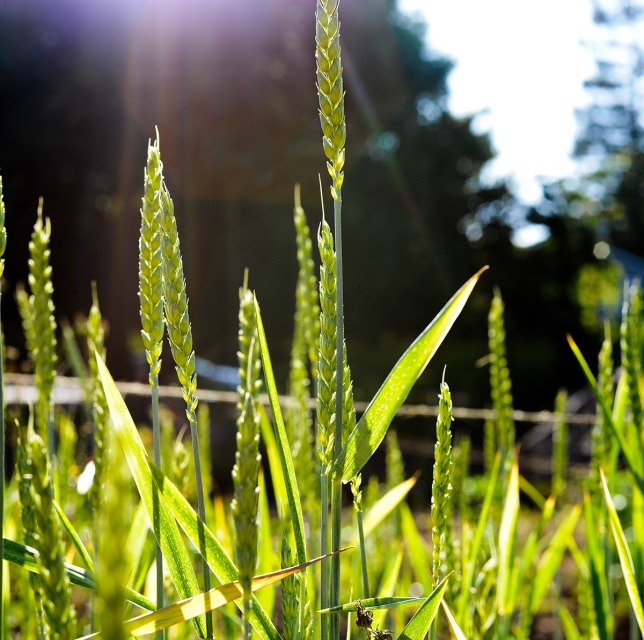- Vegetables
- >
- Grain Seeds
- >
- Wheat, Oats & Barley
- >
- Einkorn Ancient Wheat "Stone Age"
Einkorn Ancient Wheat "Stone Age"
Einkorn is the ancient ancestor of modern wheat, and has been grown continously in the Middle East and the Fertile Crescent for over a thousand years. Not gluten-free, but it has a different kind of gluten that many people with wheat allergies can eat. (not celiac sufferers, though) This pure einkorn strain is reputed to have come from ancient sites, and has been stewarded in the hills of Northern California for decades, with no genetic contamination by commercial wheat production. It is a beautiful plant. Growth is facultative, meaning it can be either spring or fall-planted. It does need a cool growing period, before it produces grain in the summer, so spring plantings should be as early as possible. Does best in soil that is in good heart, but not too heavily fertilized. Should be spaced farther apart than modern wheat--10 to 12" is good--to realize the benefits of its big root system and many tillers (grain-bearing stalks). We have seen up to 40 tillers per plant when grown at wide spacing in good conditions. Grown by Krista Rome of the Backyard Beans and Grains Project. 50 seeds per packet. Consider sowing in a flat and transplanting to minimize losses to birds and rodents. Transplant when 6" high. 60 seeds

